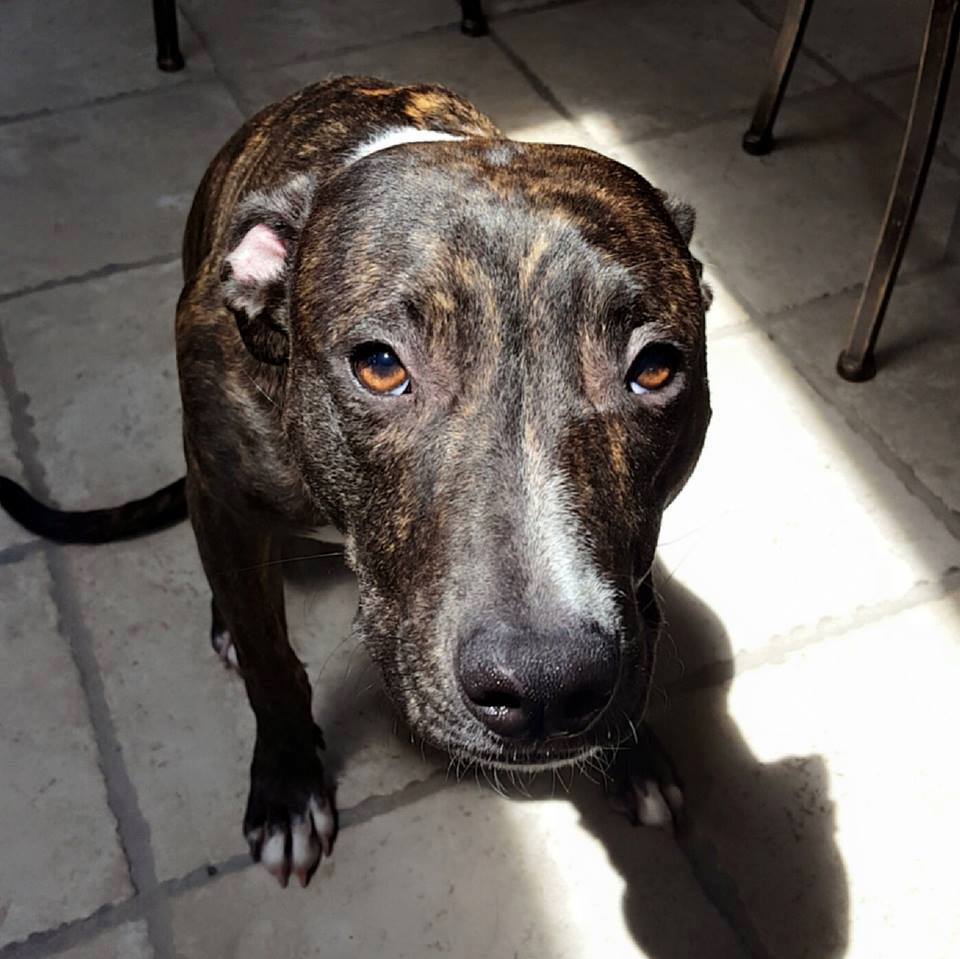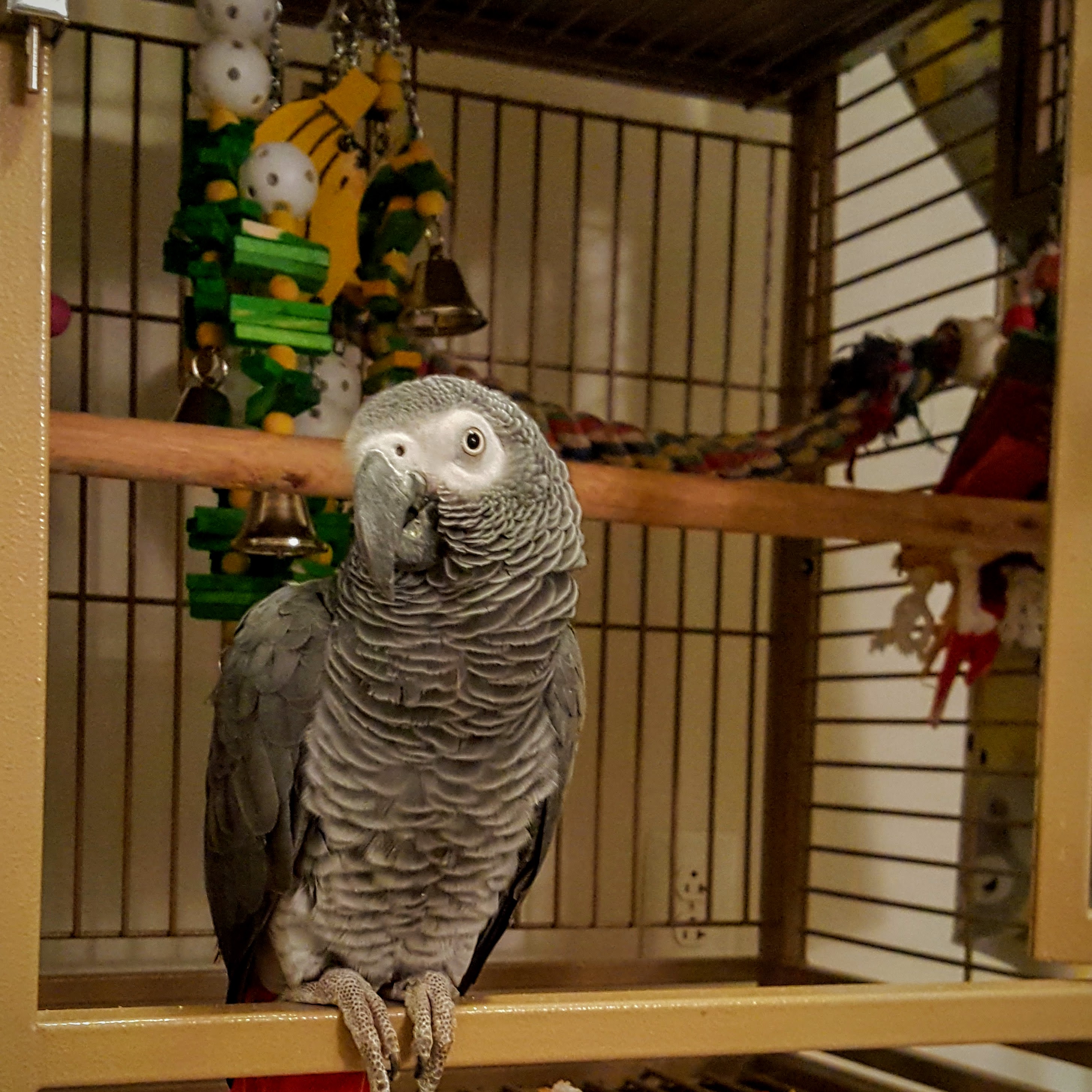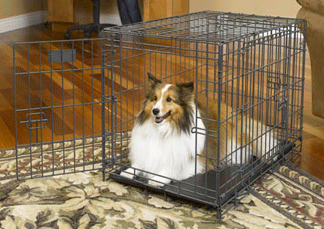While there are many parronts that exclusively have parrots and other types of birds, the vast majority share their homes with a variety of animals. I’m a great example; I have Symon and Murphy, as well as two rabbits, two hamsters, and I care for dogs a few days a week in my home. Heck, I’m even babysitting two rowdy kittens for a week while their dad is on a vacation! Sharing my life with many kinds of pets brings me great joy and fulfillment, but it doesn’t come without certain risks. Have you ever sat back to think about how some of your pets may be predators, and others may be prey?

We, as humans, often forget that our pets are powered by instinct, and may not necessarily share our love and compassion for animals of other species. Let’s consider our favorite predator species of pets – dogs, cats, and ferrets. Hundreds of breeds, distinct and vast personalities, and generally friendly dispositions make all three of these predators great companions for people – especially because we are too large and strong to become their next meal!
Although we shouldn’t assume that the family dog, cat, or ferret would make a meal of us if they had the chance, we SHOULD assume that they would do so with a prey species. The vast majority of dog breeds have a detectable prey drive; this means that they will pursue any animal that appears to be fleeing in an attempt to catch, and likely kill, it. Cats are well-known bird hunters, but ferrets are also likely to view your parrot as a snack food. Knowing this, it is logical to view keeping predator and prey in the same home as a gamble; and, while it may be tricky, it is not impossible to have both, and keep everyone safe, at the same time.

When I babysit dogs in my apartment, I make sure that Symon and Murphy are securely locked inside their cages, along with plenty of toys and snacks to keep themselves occupied for a few hours. I usually only have two dogs that visit regularly: Nelly (Pit Bull mix) and Mollie (Collie). Both girls are very sweet, docile, and obedient; however, both of them are likely to sit in front of the bird cage and stare intently at the boys for long stretches of time. To an untrained eye, this could be seen as innocent admiration of how the birds are acting. To me, however, it is studying – to see if the birds are something to play with and/or eat. Despite being sweet, friendly puppies, both dogs could kill my birds in a split second. One mistake would mean the end of my birds’ lives many years too early – and that is why they are ALWAYS caged with a dog in the home. This is an easy solution for me, but what if you have dogs that stay in the home full-time?
Crate training your dog is a great tool for any dog owner to utilize, as it helps your dog feel safe and comfortable in many situations, and gives him a place to call his own. Did you know we carry dog crates and accessories? You can order a crate, bed, toys, and many other things you’ll want your dog to have while he spends his time resting pe acefully! By having your dog reliably and comfortably secured inside his crate, your birds are free to exercise outside their cages. While crate training is a simple solution, it is not the only one. Many parronts use a spare bedroom to create a safe haven for their feathered friends – a bird room! With the ability to shut a door between the birds and the dog, you create a safe situation that allows both pets to coexist without sharing the same space. Do you have a bird room? We’d love to see pictures in the comments below!
acefully! By having your dog reliably and comfortably secured inside his crate, your birds are free to exercise outside their cages. While crate training is a simple solution, it is not the only one. Many parronts use a spare bedroom to create a safe haven for their feathered friends – a bird room! With the ability to shut a door between the birds and the dog, you create a safe situation that allows both pets to coexist without sharing the same space. Do you have a bird room? We’d love to see pictures in the comments below!
Leaving everyone caged while you’re out of the home is best way to keep everyone safe – not just the birds. Many parrot species have powerful beaks which could easily injure a curious puppy nose pressed up against the cage bars. And, especially for small birds in lightweight cages, there is always a chance that a curious dog could knock a cage stand over to get a better look at your parrot.
While your dog may not exhibit any predatory or aggressive behaviors towards your birds, it is always better to err on the side of caution and keep them separate. Even the family dog who loves to play or romp with your bird may accidentally bite one day – and that won’t end well for your parrot. How do YOU ensure all of the pets in your home are safe? Share your ideas and methods in the comments below.
2,213 total views, 3 views today
